Showing 21-30 of 81 results
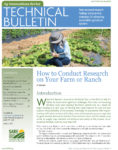
How to Conduct Research on Your Farm or Ranch
This 32-page bulletin outlines how to conduct research at the farm level, offering practical tips for both crop and livestock producers, as well as a comprehensive list of more in-depth resources.
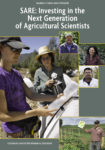
Investing in the Next Generation of Agricultural Scientists
Sustainable solutions to today's agricultural challenges arise when scientists, educators and producers work together to test theories in real-world, on-farm situations. For this approach itself to be sustainable, there must be opportunities for the next generation of agricultural scientists to use collaborative, applied research to address the real-world needs of farmers and ranchers. The SARE Graduate Student grant program is one such opportunity—since 2000, the program has supported the work of 600 master's and Ph.D. students.
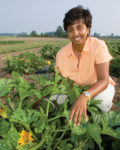
National Continuing Education Program
This program is designed for Cooperative Extension and Natural Resource Conservation Service personnel, and is also open to farmers, ranchers, and other agricultural professionals nationwide. It emphasizes core concepts and a basic understanding of sustainable agriculture, its goals and its relevance to every farming and ranching operation—large or small. The core of the national continuing education program is a series of three online courses. Take them now.
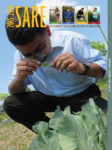
2015/2016 Report from the Field
Read about SARE-funded work in the areas of sustainable dairy cropping systems, soil health assessments, nutrient management, cover crops, beginning farmers, pollinators, technical assistance programs for women farmers, and more. This edition includes highlights of projects funded through the graduate student program, and the highly regarded Sustainable Agriculture Fellowship, a professional development program coordinated by SARE and NACAA.
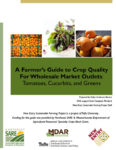
A Farmer's Guide to Crop Quality for Wholesale Outlets
A simple guide to crop quality focused on tomatoes, cucurbits and greens, with photos of good and poor crop quality as well as best practices for post-harvest handling.
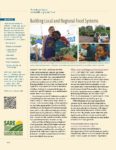
Farm to Table: Building Local and Regional Food Systems
More and more, farmers, ranchers, ag professionals, community organizers and others are striving to reconfigure the nation's food system so more value stays in food-producing communities.
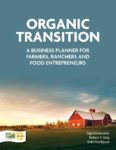
Organic Transition
The profit potential of transitioning to organic production—along with other rewards—has farmers, ranchers and food business owners across the country considering the switch. But successfully managing your business through the multi-year transition process requires careful planning. Use Organic Transition: A Business Planner for Farmers, Ranchers and Food Entrepreneurs to develop an actionable business transition plan that is suitable for yourself, your management team or a lender.
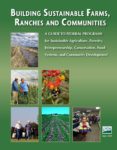
Building Sustainable Farms, Ranches and Communities
This guide lists funding opportunities offered by federal programs, and is indispensable for anyone seeking government help to foster their innovative enterprise in forestry and agriculture.
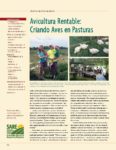
Avicultura Rentable
Avicultura Rentable: Criando Aves en Pasturas es una guía que incluye experiencias de agricultores y lo último en investigación para criar pollos y pavos usando corrales, cercos portátiles y pasturas.

FARMDATA
FARMDATA is an online system for tracking and reporting crop production data, particularly for organic vegetable growers. The system can be used for keeping records on seeding, transplanting, harvest, cover crops, compost, fertilization, irrigation, pest scouting and spraying activities, packing, distribution and customer invoicing. FARMDATA uses smart forms that help with calculations and remember key data.